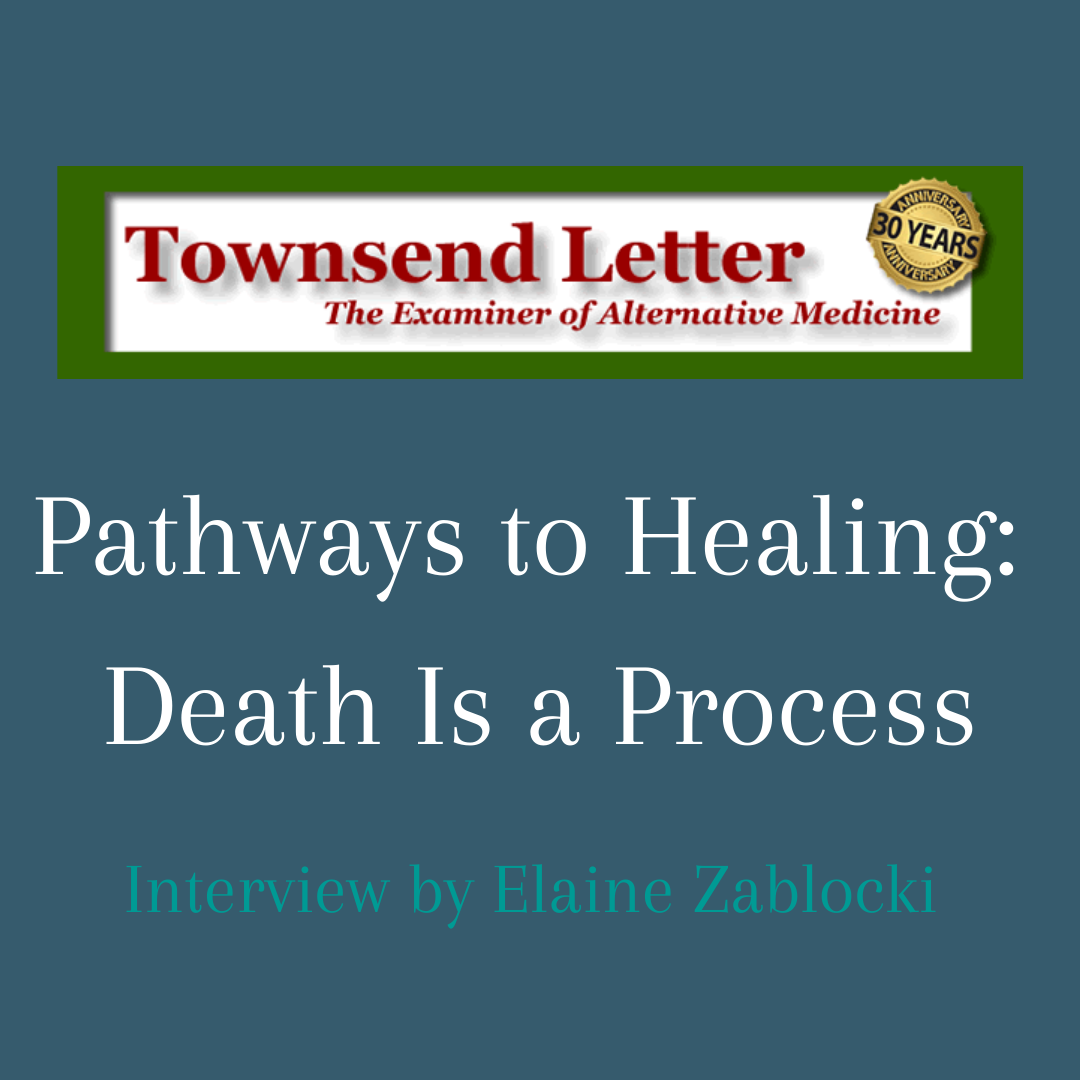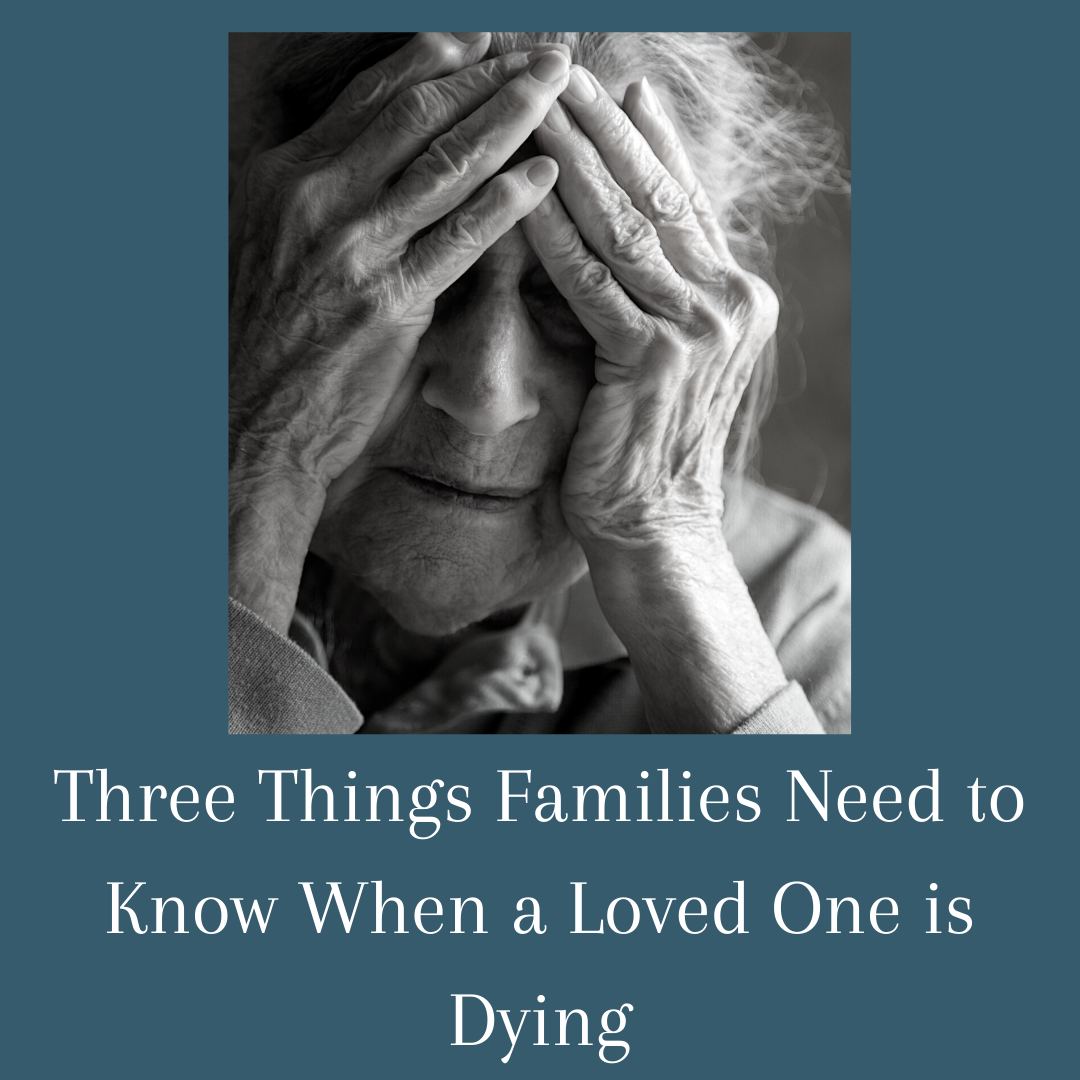Huffington Post Healthy Living: Judith Johnson
If you are wondering what I'm talking about, it is for you that I am writing this blog! Here's the bottom line: We were all born one moment of one day, and each of us is going to die one moment of another day -- we just don't get to know when that will be. For some of us, that is a major source of anxiety. Furthermore, we live in a society that has kept us in the dark about what to expect when we, or someone we love, dies. This absence of knowledge not only makes us ill-prepared to face death, but it feeds our fear of death, which in turn diminishes our enjoyment of life.
It is perfectly normal to have some anxiety or fear about death, and in fact, most death-related anxiety is actually about the process of dying rather than about being dead. That's where the little blue book comes in -- this little 14-page blue booklet gently, kindly, and in a matter-of-fact manner explains the dying experience in such a way that it brings its readers great comfort. So why not reach for that comfort sooner rather than later? Why live with death anxiety on autopilot in the background of your mind? Why wait and find yourself called to the bedside of a dying loved one unprepared for what you will encounter and not knowing what to do?
Most people working in the field of dying, death, and grieving know about "the little blue book," as it has come to be known. Many hospice and palliative care organizations around the country give this book to their dying patients and their loved ones to ease them through the dying experience. It is entitled Gone From My Sight: The Dying Experience and is written by Barbara Karnes, RN, who was one of the pioneers of the hospice movement in this country in the early 1970s. To learn more about Barbara and her work, visit her website at https://www.bkbooks.com. Barbara's other three titles are: The Eleventh Hour: A Caring Guideline For The Hours To Minutes Before Death (my personal favorite), My Friend, I Care: The Grief Experience, and A Time to Live: Living with a Life-Threatening Illness. All are available on her website.
This blog is not meant to be an advertisement for Barbara and her work, but rather I am shouting from the rooftops to spread the word that each and every one of us has the opportunity to prevent the needless suffering that our fundamental ignorance about the dying process brings. Not knowing what is normal and what the signs of the end of life are, we often cling desperately to life, relying on physicians to come up with a pill or procedure that will prolong our lives. Sometimes this is reasonable, but often the dying and their loved ones simply lack the understanding of the dying process that would enable them to consider the relative wisdom of further medical interventions or the timing of opening the door to palliative care.
Those of us who work in the field of dying, death, and grieving have satchels of stories about the ways people suffer unnecessarily through their own death or at the bedside of a loved one. Not knowing what to expect, what is normal, and how to support and comfort a loved one who is dying makes us ill at ease which detracts from a tranquil environment for the dying.
As someone who writes often about dying, death, and grieving, I am quite passionate about the need for a basic education of the general public about this topic. That's why I would go so far as to say that if I were queen of the world, I would make Barbara's books required reading for everyone and as important as a fire extinguisher to have in your home!
The vast majority of us will die of old age and/or prolonged illness. Having Barbara's books on hand when you or a loved one begins the end of life's journey empowers you all to do your very best to provide a loving, comforting, and supportive sendoff. Rather than worrying about what you should or shouldn't do, what's normal and what isn't, and how to be the greatest comfort to your loved one, empower yourself with some basic education and serve as an example to others. Sitting at your dying mother's bedside, when you know that what you are observing is normal, you can encourage her and let her know she is doing a great job of dying. In this case, a little knowledge is a very powerful, wise, and comforting thing. Read More








